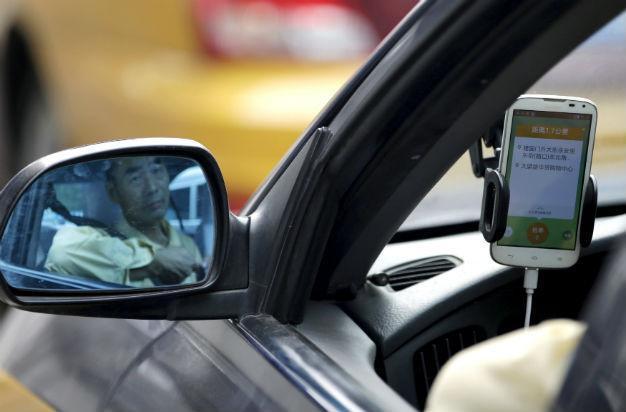Apple invests $1 billion in China taxi app Didi
BEIJING - Agence France-Presse

REUTERS photo
Apple has invested $1 billion in Chinese ride hailing app Didi Chuxing, the Beijing company said May 13 as it vies with bitter US-based rival Uber for market share in China.The injection was the “single largest investment the company has ever received,” said Didi, which dominates the car-hailing sector in China and says it has almost 90 percent of the market.
Formerly known as Didi Kuaidi, it also has backing from Chinese Internet behemoths Tencent and Alibaba.
Its most powerful competitor Uber, in which Chinese search giant Baidu is an investor, along with state-owned Citic Securities, is also trying to win more business in China.
Though Apple’s investment in Didi is large, the money seems more notable for its strategic rather than financial significance.
Didi and Uber both have deep pockets and are spending big in the country.
In February, Uber said it lost $1 billion annually in China as it competes for market share and Didi is thought to be burning through similar amounts as both companies subsidize user’s rides, which are much cheaper than regular cab fares.
Apple’s linkup with Didi fits the California firm’s desire to shore up sales in the Asian giant, and its rumored plans to enter the auto sector.
“We decided to make the investment for a number of strategic reasons, including the chance to learn more about certain segments of the China market,” chief executive Tim Cook told the official Chinese news agency Xinhua.
He added that he saw “lots of opportunities for closer cooperation between the two companies.”
Didi says it has more than 300 million passengers registered and provides over 11 million rides a day.
Those numbers provide an excellent opportunity for Apple Pay, according to an article on Chinese web site Huxiu.
Apple lost its crown as the world’s biggest publicly traded company to Google parent Alphabet in U.S. trading May 12. Shares closed 2.4 percent down.
The tech giant’s shares have lost more than 13 percent since reporting its first ever drop in iPhone sales on April 26. The world’s second-largest economy is Apple’s second-biggest market, but revenues are flagging and its business there has taken a number of hits.
















